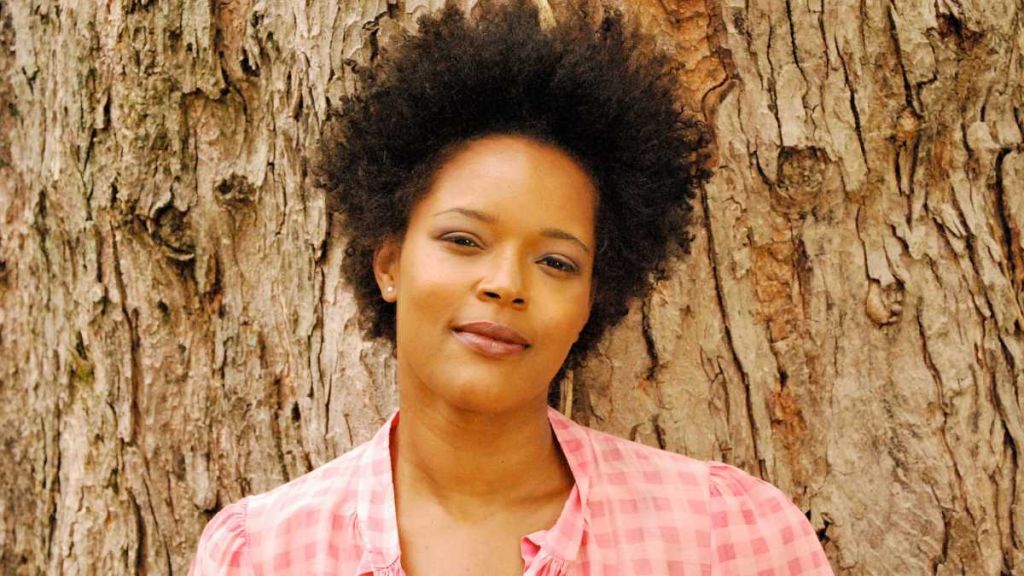Yolanda Wisher
Poetry Critique and Commentary

Yolanda Wisher is the 2016-2017 Poet Laureate of the City of Philadelphia. Wisher is the author of Monk Eats an Afro and the co-editor of Peace is a Haiku Song. Her work has appeared in Ploughshares, Fence, Chain, MELUS, and GOOD Magazine and the anthologies Gathering Ground and The Ringing Ear. Wisher is a 2016 Hedgebrook Writer-in-Residence, 2015 Pew Fellow, Center for Performance and Civic Practice Catalyst Initiative grantee (2015), Leeway Art & Change Award recipient (2008), and the inaugural Montgomery County Pennsylvania Poet Laureate (1999). She holds an M.A in English/Creative Writing-Poetry from Temple University and a B.A. in English/Black Studies from Lafayette College. Wisher founded and directed the Germantown Poetry Festival (2006-2010) and served as Director of Art Education for the City of Philadelphia Mural Arts Program (2010-2015). She currently works as Chief Rhapsodist of Wherewithal for the U.S. Department of Arts and Culture.
Artist Statement
I grapple with issues of my time and times gone, particularly social injustice, migration, and marginalization. I explore these issues from a personal perspective in poetry, and I seek to contribute to a larger narrative and soundtrack of hope and resistance in the face of displacement and discrimination.
I write personal and cultural histories concentrated with music, shaped by forms such as blues, jazz, hip hop, and ragtime. I strive for a musicianship of poetry on the page and in performance, marrying words with delivery to present my voice as an instrument in the band that can play along the continuum of poetry and song. Performing a poem is an exercise in resuscitating my “mouth on paper” (Jayne Cortez), of re-inhabiting, exposing, and sharing with others what was initially a private moment of inspiration and creation.
Places with divergent pasts and presents create a tableau for my work, including the Germantown section of Philadelphia where I was born and now reside, and the Montgomery County towns of Penllyn and Ambler where I grew up and my mother’s family has lived for more than a hundred years. Ambler was once known as the “asbestos capital of the world” and is home to BoRit, an EPA’s Superfund site containing hazardous waste. My great-grandmother’s house on West Maple Street, built in the 1930s, was recently an EPA office on the edge of a two-acre, twenty-five foot pile of asbestos remnants. The story of black Ambler and black Germantown, stories of environmental racism and neglect, are largely untold. I write to unearth these hidden motherlands.
I spent my teens and twenties searching for relatives among unmarked graves; I met my birth father when I was thirty, on my wedding day, after years of searching. I have lost family elders and their stories to death and disease. Poetry is a genealogical project I have undertaken out of urgency, passion, curiosity, justice, and also love and legacy. When my son was born six years ago, his father could trace his family’s Garifuna ancestry to the island of St. Vincent in the 16th century. I could only go back to 1913, the year of my great-grandmother’s birth. With the last six years of Thelonious’ life as a catalyst, I can now trace my maternal lineage to the mid-1850s. But I struggle with the erasure and obstacles slavery presents to my research. In poetry, I locate a sense of self and pride embedded in the scant details of my ancestor’s lives. In the absence of memory, witness, and record, poetry is my portrait of a black family. Though diasporic and diffuse, scattered and grudge-ridden, the story of our family’s survival in the face of past destruction is a blueprint I’ll leave behind.